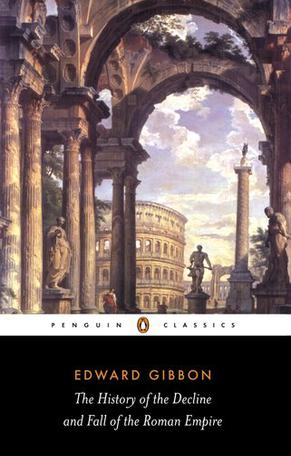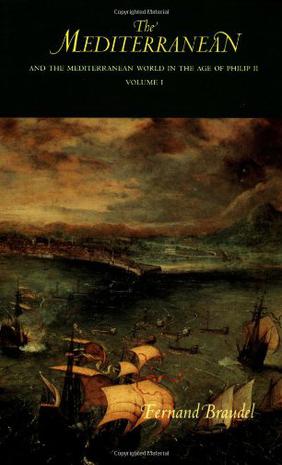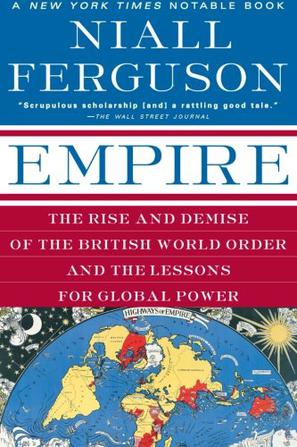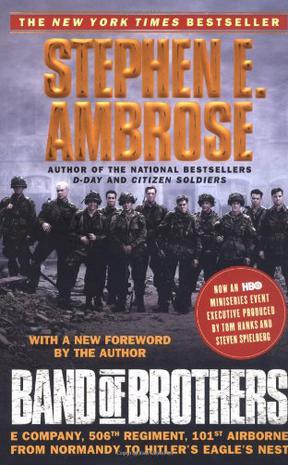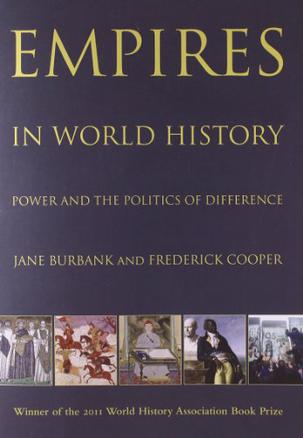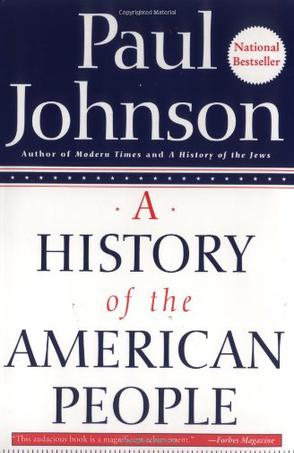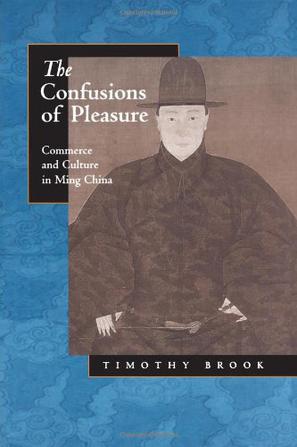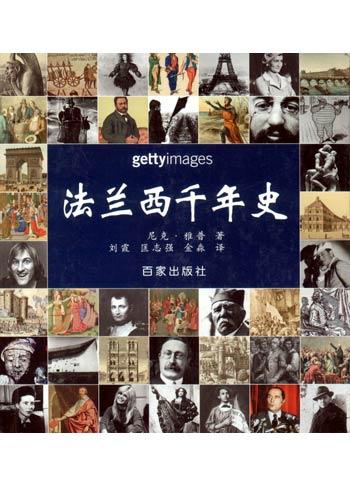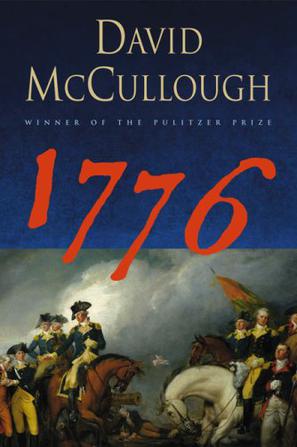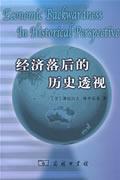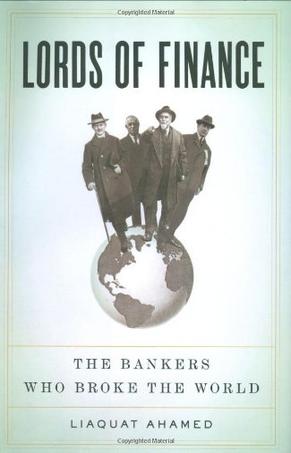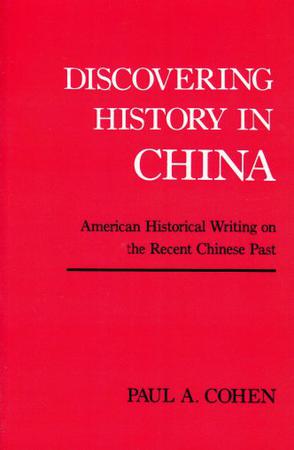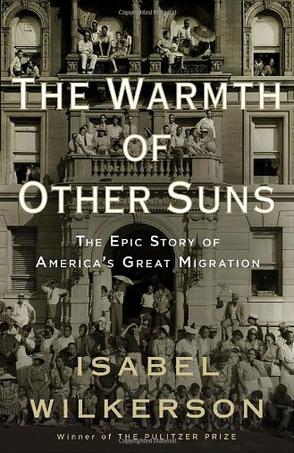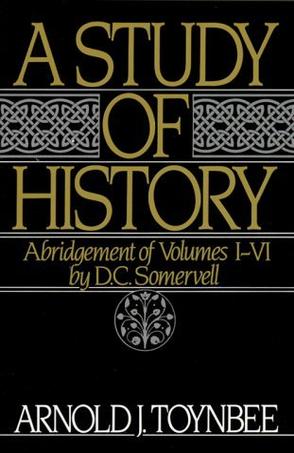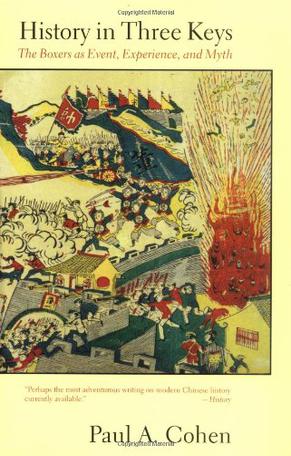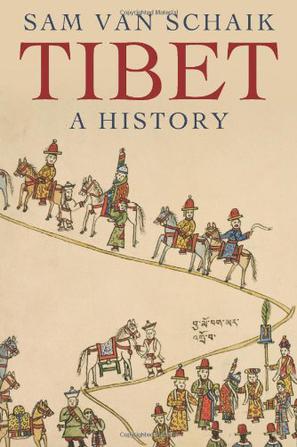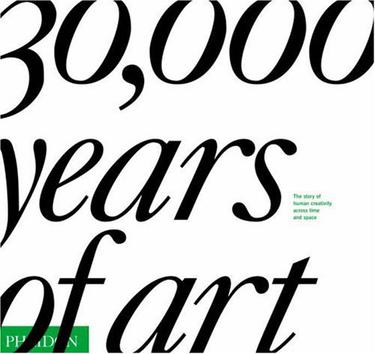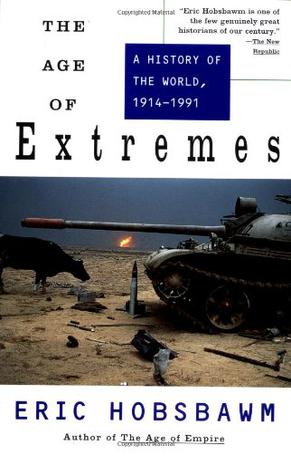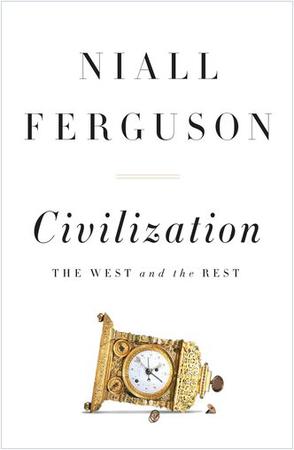欢迎来到相识电子书!
标签:History
-
A History of Architecture
No mere survey of famous buildings, Kostof's History examines an inclusive spectrum of manmade structures: prehistoric huts and the TVA, the pyramids at Giza and the Rome railway station, the ziggurat and the department store. Indeed, Kostof considered every building worthy of attention, every structure or shelter a potential source of insight, whether it be the prehistoric hunting camps at Terra Amata, or the caves at Lascaux with their magnificent paintings, or a twenty-story hotel on the Las Vegas strip. The Second Edition features a new concluding chapter, "Designing the Fin-de-Siecle, " based on Kostof's last lecture notes and prepared by Castillo, as well as an all-new sixteen-page color section. Many of the original line drawings by Richard Tobias, as well as some fifty photographs, have also been updated or replaced, for improved clarity. -
The History of the Decline and Fall of the Roman Empire
In the greatest work of history in the English language, Edward Gibbon compresses thirteen turbulent centuries into a gripping epic narrative. It is history in the grand eighteenth-century manner, a well-researched drama charged with insight, irony, and incisive character analysis. In elegant prose, Gibbon presents both the broad pattern of events and the significant revealing detail. He delves into religion, politics, sexuality, and social mores with equal authority and aplomb. While subsequent research revealed minor factual errors about the early Empire, Gibbon's bold vision, witty descriptions of a vast cast of characters, and readiness to display his own beliefs and prejudices result in an astonishing work of history and literature, at once powerfully intelligent and enormously entertaining. Based on David Womersley's definitive three-volume Penguin Classics edition of The Decline and Fall of the Roman Empire , this abridgement contains complete chapters from all three volumes, linked by extended bridging passages, vividly capture the style, the argument, and the architecture of the whole work. -
The Mediterranean and the Mediterranean World in the Age of Philip II
The focus of Fernand Braudel's great work is the Mediterranean world in the second half of the sixteenth century, but Braudel ranges back in history to the world of Odysseus and forward to our time, moving out from the Mediterranean area to the New World and other destinations of Mediterranean traders. Braudel's scope embraces the natural world and material life, economics, demography, politics, and diplomacy. -
Empire
"A splendid history.... If Americans want to be convinced of the benefits of empire, as well as apprised of its costs, they need merely pick up Ferguson's dazzling book." -- Weekly Standard The British Empire was the largest in all history: the nearest thing to world domination ever achieved. By the eve of World War II, around a quarter of the world's land surface was under some form of British rule. Yet for today's generation, the British Empire seems a Victorian irrelevance. The time is ripe for a reappraisal, and in Empire , Niall Ferguson boldly recasts the British Empire as one of the world's greatest modernizing forces. An important new work of synthesis and revision, Empire argues that the world we know today is in large measure the product of Britain's Age of Empire. The spread of capitalism, the communications revolution, the notion of humanitarianism, and the institutions of parliamentary democracy-all these can be traced back to the extraordinary expansion of Britain's economy, population, and culture from the seventeenth century until the mid-twentieth. On a vast and vividly colored canvas, Empire shows how the British Empire acted as midwife to modernity. Displaying the originality and rigor that have made him the brightest light among British historians, Ferguson shows that the story of the Empire is pregnant with lessons for today-in particular for the United States as it stands on the brink of a new era of imperial power, based once again on economic and military supremacy. A dazzling tour de force, Empire is a remarkable reappraisal of the prizes and pitfalls of global empire. -
Band of Brothers
在线阅读本书 Through soldiers' journals and letters, describes Easy Company's contributions to the campaigns in western Europe and recounts their stories of survival. Amazon.co.uk Review As grippingly as any novelist, preeminent World War II historian Stephen Ambrose uses Band of Brothers to tell the horrifying, hallucinatory saga of Easy Company, whose 147 members he calls the nonpareil combat paratroopers on earth circa 1941-45. Ambrose takes us along on Easy Company's trip from gruelling basic training to Utah Beach on D-day, where a dozen of them turned German cannons into dynamited ruins resembling "half-peeled bananas", on to the Battle of the Bulge, the liberation of part of the Dachau concentration camp, and a large party at Hitler's "Eagle's Nest", where they drank the his (surprisingly inferior) champagne. Of Ambrose's main sources, three soldiers became rich civilians; at least eight became teachers; one became Albert Speer's jailer; one prosecuted Robert Kennedy's assassin; another became a mountain recluse; the despised, sadistic CO who first trained Easy Company (and to whose strictness many soldiers attributed their survival of the war) wound up a suicidal loner whose own sons skipped his funeral. The Easy Company survivors describe the hell and confusion of any war: the senseless death of the nicest kid in the company when a souvenir Luger goes off in his pocket; the execution of a GI by his CO for disobeying an order not to get drunk. Despite the gratuitous horrors it relates, Band of Brothers illustrates what one of Ambrose's sources calls "the secret attractions of war ... the delight in comradeship, the delight in destruction ... war as spectacle". --Tim Appelo Amazon.com Audibook Review The men of E Company, 506th Regiment, 101st Airborne, volunteered for this elite fighting force because they wanted to be the best in the army--and avoid fighting alongside unmotivated, out-of-shape draftees. The price they paid for that desire was long, arduous, and sometimes sadistic training, followed by some of the most horrific battles of World War II. Actor Cotter Smith--a veteran of numerous TV movies and Broadway plays--spins Stephen Ambrose's tale with almost laconic ease. Anecdote by anecdote, he lets the power of the story build. By the time the company has gotten through D-day and seized Hitler's Eagle's Nest in Bavaria, we feel we know as much about the men and their missions as we do about our own brothers. (Running time: 5 hours, 4 cassettes) --Lou Schuler Book Dimension Height (mm) 234 Width (mm) 157 -
Empires in World History
Empires - vast states of territories and people united by force and ambition - have dominated the political landscape for more than two millennia. "Empires in World History" departs from conventional European and nation-centered perspectives to take a remarkable look at how empires relied on diversity to shape the global order. Beginning with ancient Rome and China and continuing across Asia, Europe, the Americas, and Africa, Jane Burbank and Frederick Cooper examine empires' conquests, rivalries, and strategies of domination - with an emphasis on how empires accommodated, created, and manipulated differences among populations. Burbank and Cooper examine Rome and China from the third century BCE, empires that sustained state power for centuries. They delve into the militant monotheism of Byzantium, the Islamic Caliphates, and the short-lived Carolingians, as well as the pragmatically tolerant rule of the Mongols and Ottomans, who combined religious protection with the politics of loyalty. Burbank and Cooper discuss the influence of empire on capitalism and popular sovereignty, the limitations and instability of Europe's colonial projects, Russia's repertoire of exploitation and differentiation, as well as the "empire of liberty" - devised by American revolutionaries and later extended across a continent and beyond. With its investigation into the relationship between diversity and imperial states, "Empires in World History" offers a fresh approach to understanding the impact of empires on the past and present. -
A History of the American People
"The creation of the United States of America is the greatest of all human adventures," begins Paul Johnson's remarkable new American history. "No other national story holds such tremendous lessons, for the American people themselves and for the rest of mankind." Johnson's history is a reinterpretation of American history from the first settlements to the Clinton administration. It covers every aspect of U.S. history--politics; business and economics; art, literature and science; society and customs; complex traditions and religious beliefs. The story is told in terms of the men and women who shaped and led the nation and the ordinary people who collectively created its unique character. Wherever possible, letters, diaries, and recorded conversations are used to ensure a sense of actuality. "The book has new and often trenchant things to say about every aspect and period of America's past," says Johnson, "and I do not seek, as some historians do, to conceal my opinions." Johnson's history presents John Winthrop, Roger Williams, Anne Hutchinson, Cotton Mather, Franklin, Tom Paine, Washington, Adams, Jefferson, Hamilton, and Madison from a fresh perspective. It emphasizes the role of religion in American history and how early America was linked to England's history and culture and includes incisive portraits of Andrew Jackson, Chief Justice Marshall, Clay, Lincoln, and Jefferson Davis. Johnson shows how Grover Cleveland and Teddy Roosevelt ushered in the age of big business and industry and how Woodrow Wilson revolutionized the government's role. He offers new views of Harding, Coolidge, and Hoover and of Franklin Roosevelt's New Deal and his role as commander in chief during World War II. An examination of the unforeseen greatness of Harry Truman and reassessments of Eisenhower, Kennedy, Johnson, Nixon, Reagan, and Bush follow. "Compulsively readable," said Foreign Affairs of Johnson's unique narrative skills and sharp profiles of people. This is an in-depth portrait of a great people, from their fragile origins through their struggles for independence and nationhood, their heroic efforts and sacrifices to deal with the `organic sin' of slavery and the preservation of the Union to its explosive economic growth and emergence as a world power and its sole superpower. Johnson discusses such contemporary topics as the politics of racism, education, Vietnam, the power of the press, political correctness, the growth of litigation, and the rising influence of women. He sees Americans as a problem-solving people and the story of America as "essentially one of difficulties being overcome by intelligence and skill, by faith and strength of purpose, by courage and persistence...Looking back on its past, and forward to its future, the auguries are that it will not disappoint humanity." This challenging narrative and interpretation of American history by the author of many distinguished historical works is sometimes controversial and always provocative. Johnson's views of individuals, events, themes, and issues are original, critical, and admiring, for he is, above all, a strong believer in the history and the destiny of the American people. -
法兰西千年史
秩序和美感是法国献给世界的伟大礼物。前者是拿破仑时代的遗产,来势迅猛而又压倒一切。后者则是被逐渐奉献出来的——一连串的礼物,每一个都精致而时髦,其总和相当于地球上最丰富的珍宝矿藏。本书用1300多幅图片,从政治、战争、民族、文化等方面讲述了法兰西从11世纪初期至今的发生的重大事件和历史成就……(书中1300幅彩色片来自珍贵的中世纪手高、历史文献、绘画作品、新闻照片等) -
1776
From Publishers Weekly Starred Review. Bestselling historian and two-time Pulitzer winner McCullough follows up John Adams by staying with America's founding, focusing on a year rather than an individual: a momentous 12 months in the fight for independence. How did a group of ragtag farmers defeat the world's greatest empire? As McCullough vividly shows, they did it with a great deal of suffering, determination, ingenuity—and, the author notes, luck.Although brief by McCullough's standards, this is a narrative tour de force, exhibiting all the hallmarks the author is known for: fascinating subject matter, expert research and detailed, graceful prose. Throughout, McCullough deftly captures both sides of the conflict. The British commander, Lord General Howe, perhaps not fully accepting that the rebellion could succeed, underestimated the Americans' ingenuity. In turn, the outclassed Americans used the cover of night, surprise and an abiding hunger for victory to astonishing effect. Henry Knox, for example, trekked 300 miles each way over harsh winter terrain to bring 120,000 pounds of artillery from Fort Ticonderoga to Boston, enabling the Americans, in a stealthy nighttime advance, to seize Dorchester Heights, thus winning the whole city.Luck, McCullough writes, also played into the American cause—a vicious winter storm, for example, stalled a British counterattack at Boston, and twice Washington staged improbable, daring escapes when the war could have been lost. Similarly, McCullough says, the cruel northeaster in which Washington's troops famously crossed the Delaware was both "a blessing and a curse." McCullough keenly renders the harshness of the elements, the rampant disease and the constant supply shortfalls, from gunpowder to food, that affected morale on both sides—and it certainly didn't help the British that it took six weeks to relay news to and from London. Simply put, this is history writing at its best from one of its top practitioners. -
经济落后的历史透视:论文集
《经济落后的历史透视》除导言、结束语以及三个附录以外,共分14章。其中,前八章属于对经济史的研究,作者通过对俄国、法国、德国、意大利、奥地利、保加利亚等国主要在19世纪的经济发展的特殊经验进行比较分析,形成了以相对落后程度为核心概念的基本理论框架,旨在为欧洲经济史的研究提供一种新的理论模式。在结束语中则对这一理论模式提供了一个简要总结。后面的六章属于对20世纪前苏联经济与社会问题的研究,由于格申克龙在很大程度上是坚持从上面所述他的经济史研究新模式的视角来审视和剖析这些问题的,故而它们与前面的各章之间在逻辑上又是浑然一体的。其中后面的三篇文章主要是通过苏维埃的文学作品来透视其社会经济的运行状况,而其最后的一篇文章“关于小说《日瓦戈医生》的评注”则堪称是文学批评的经典之作。从这些文章中,读者可以看到格申克龙严谨的治史态度、渊博的历史知识以及卓越的理论批判与建构能力。 -
Lords of Finance
As the global economy is racked by its worst crisis since the Great Depression, there is a renewed interest in the lessons to be learned from the world economic collapse of the late 1920s. Drawing on his best-selling book, Lords of Finance: The Bankers Who Broke the World, noted author Liaquat Ahamed discusses the insights we can gain from the Great Depression about the forces that cause global financial crises, the similarities between the breaks down in the 1920s and the current meltdown and the actions economic officials need to take in order to reverse the downward spiral in the world economy and avoid a repeat of that cataclysm. -
Discovering History in China
Since its first publication, Paul A. Cohen's Discovering History in China has occupied a singular place in American China scholarship. Translated into three East Asian languages, the volume has become essential to the study of China from the early nineteenth century to today. Cohen critiques the work of leading postwar scholars and is especially adamant about not reading China through the lens of Western history. To this end, he uncovers the strong ethnocentric bias pervading the three major conceptual frameworks of American scholarship of the 1950s and 1960s: the impact-response, modernization, and imperialism approaches. In place of these, Cohen favors a "China-centered" approach in which historians understand Chinese history on its own terms, paying close attention to Chinese historical trajectories and Chinese perceptions of their problems, rather than a set of expectations derived from Western history. In an important new introduction, Cohen reflects on his fifty-year career as a historian of China and discusses major recent trends in the field. Although some of these developments challenge a narrowly conceived China-centered approach, insofar as they enable more balanced comparisons between China and the West and recast the Chinese and their history in more human, less exotic terms, they powerfully affirm the central thrust of Cohen's work. -
The Warmth of Other Suns
In this epic, beautifully written masterwork, Pulitzer Prize–winning author Isabel Wilkerson chronicles one of the great untold stories of American history: the decades-long migration of black citizens who fled the South for northern and western cities, in search of a better life. From 1915 to 1970, this exodus of almost six million people changed the face of America. Wilkerson compares this epic migration to the migrations of other peoples in history. She interviewed more than a thousand people, and gained access to new data and official records, to write this definitive and vividly dramatic account of how these American journeys unfolded, altering our cities, our country, and ourselves. With stunning historical detail, Wilkerson tells this story through the lives of three unique individuals: Ida Mae Gladney, who in 1937 left sharecropping and prejudice in Mississippi for Chicago, where she achieved quiet blue-collar success and, in old age, voted for Barack Obama when he ran for an Illinois Senate seat; sharp and quick-tempered George Starling, who in 1945 fled Florida for Harlem, where he endangered his job fighting for civil rights, saw his family fall, and finally found peace in God; and Robert Foster, who left Louisiana in 1953 to pursue a medical career, the personal physician to Ray Charles as part of a glitteringly successful medical career, which allowed him to purchase a grand home where he often threw exuberant parties. Wilkerson brilliantly captures their first treacherous and exhausting cross-country trips by car and train and their new lives in colonies that grew into ghettos, as well as how they changed these cities with southern food, faith, and culture and improved them with discipline, drive, and hard work. Both a riveting microcosm and a major assessment, The Warmth of Other Suns is a bold, remarkable, and riveting work, a superb account of an “unrecognized immigration” within our own land. Through the breadth of its narrative, the beauty of the writing, the depth of its research, and the fullness of the people and lives portrayed herein, this book is destined to become a classic. -
A Study of History, Vol. 1
Arnold Toynbee's A Study of History has been acknowledged as one of the greatest achievements of modern scholarship. A ten-volume analysis of the rise and fall of human civilizations, it is a work of breath-taking breadth and vision. D.C. Somervell's abridgement, in two volumes, of this magnificent enterprise, preserves the method, atmosphere, texture, and, in many instances, the very words of the original. Originally published in 1947 and 1957, these two volumes are themselves a great historical achievement. Volume 1, which abridges the first six volumes of Toynbee's study, includes the Introduction, The Geneses of Civilizations, and The Disintegrations of Civilizations. Volume 2, an abridgement of Volumes VII-X, includes sections on Universal States, Universal churches, Heroic Ages, Ccontacts Between Civilizations in Space, Contacts Between Civilizations in Time, Law and Freedom in History, The Prospects of the Western Civilization, and the Conclusion. Of Somervell's work, Toynbee wrote, "The reader now has at his command a uniform abridgement of the whole book, made by a clear mind that has not only mastered the contents but has entered into the writer's outlook and purpose." -
History in Three Keys
Examines the craft of historiography against the backdrop of the Chinese Boxer Rebellion of 1898-1900. The text juxtaposes the account of historians with those of the participants and witnesses and sets these perspectives against the range of popular myths about the Boxers. -
Tibet
Situated north of the Himalayas, Tibet is famous for its unique culture and its controversial assimilation into modern China. Yet Tibet in the twenty-first century can only be properly understood in the context of its extraordinary history. Sam van Schaik brings the history of Tibet to life by telling the stories of the people involved, from the glory days of the Tibetan empire in the seventh century through to the present day. He explores the emergence of Tibetan Buddhism and the rise of the Dalai Lamas, Tibet's entanglement in the "Great Game" in the early twentieth century, its submission to Chinese Communist rule in the 1950s, and the troubled times of recent decades. Tibet sheds light on the country's complex relationship with China and explains often-misunderstood aspects of its culture, such as reborn lamas, monasteries and hermits, The Tibetan Book of the Dead, and the role of the Dalai Lama. Van Schaik works through the layers of history and myth to create a compelling narrative, one that offers readers a greater understanding of this important and controversial corner of the world. -
30,000 Years of Art
30,000 YEARS OF ART: THE STORY OF HUMAN CREATIVITY ACROSS TIME AND SPACE is the follow-up to Phaidon's phenomenally successful THE ART BOOK. This is an accessible, fun and informative compendium of world art that offers a fresh perspective on the whole of art history, from 28,000 BC to the present day. It debunks art historical classifications and hierarchies by presenting 1,000 masterworks of art in simple chronological order, demonstrating what was being created all over the globe at the same time. Only here can you find the Venus de Milo next to a mural from the Mayan civilization, or Velazquez' Las Meninas next to a painting from the Chinese Ming Dynasty, an Indian jade wine cup, a ritual Nepalese plaque, a Korean portrait, and Vermeer's Milkmaid. Each work has been chosen for its unique place in the history of art, and as a representative example of the art of its culture. By juxtaposing works of art from different cultures throughout time, this is the first book to offer a balanced appraisal of world art history, revealing the huge diversity of and similarity between man's artistic achievements. Each entry includes a full-page color image of the work and a concise descriptive text that sets the work in context, explaining its contribution to the development of art and the medium in which it was created. A comprehensive index, illustrated timelines, and a glossary of terms and movements make this book an invaluable reference tool and teaching resource. -
The Age of Extremes
Dividing the century into the Age of Catastrophe, 1914-1950, the Golden Age, 1950-1973, and the Landslide, 1973-1991, Hobsbawm marshals a vast array of data into a volume of unparalleled inclusiveness, vibrancy, and insight, a work that ranks with his classics The Age of Empire and The Age of Revolution. Includes 32 pages of photos. -
Civilization
If in the year 1411 you had been able to circumnavigate the globe, you would have been most impressed by the dazzling civilizations of the Orient. The Forbidden City was under construction in Ming Beijing; in the Near East, the Ottomans were closing in on Constantinople. By contrast, England would have struck you as a miserable backwater ravaged by plague, bad sanitation and incessant war. The other quarrelsome kingdoms of Western Europe - Aragon, Castile, France, Portugal and Scotland - would have seemed little better. As for fifteenth-century North America, it was an anarchic wilderness compared with the realms of the Aztecs and Incas. The idea that the West would come to dominate the Rest for most of the next half millennium would have struck you as wildly fanciful. And yet it happened. What was it about the civilization of Western Europe that allowed it to trump the outwardly superior empires of the Orient? The answer, Niall Ferguson argues, was that the West developed six 'killer applications' that the Rest lacked: competition, science, democracy, medicine, consumerism and the work ethic. The key question today is whether or not the West has lost its monopoly on these six things. If so, Ferguson warns, we may be living through the end of Western ascendancy. Civilization takes readers on their own extraordinary journey around the world - from the Grand Canal at Nanjing to the Topkapi Palace in Istanbul; from Machu Picchu in the Andes to Shark Island, Namibia; from the proud towers of Prague to the secret churches of Wenzhou. It is the story of sailboats, missiles, land deeds, vaccines, blue jeans and Chinese Bibles. It is the defining narrative of modern world history.
热门标签
下载排行榜
- 1 梦的解析:最佳译本
- 2 李鸿章全传
- 3 淡定的智慧
- 4 心理操控术
- 5 哈佛口才课
- 6 俗世奇人
- 7 日瓦戈医生
- 8 笑死你的逻辑学
- 9 历史老师没教过的历史
- 10 1分钟和陌生人成为朋友


